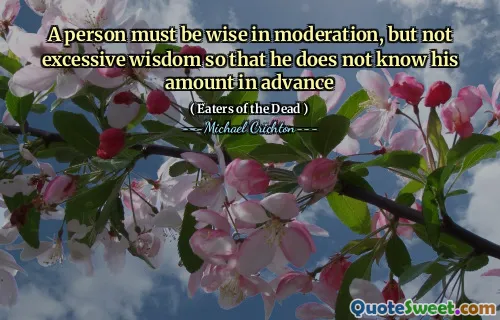
Gentlemen, when the enemy is committed to a mistake we must not interrupt him too soon.
This quote underscores the importance of patience and strategic timing, especially in leadership and conflict situations. Often, in the heat of the moment, there's a temptation to intervene immediately once a mistake becomes evident. However, allowing the opposing side some space to continue their error can be advantageous, particularly if it leads to their downfall or provides opportunities for a more decisive or strategic response. The essence of this wisdom lies in understanding the dynamics of an opponent's mistakes—sometimes, interference could disrupt their natural progression towards ruin, thus denying oneself the chance to capitalize on their errors effectively.
In 'going with the flow' and observing from a position of detached strategic superiority, one can gather more intelligence, assess the full impact of poor decisions, and decide on the optimal moment for intervention. This approach is applicable not just in warfare but also in negotiations, competitive business tactics, and personal conflicts. It encourages patience, discipline, and a nuanced understanding of timing—traits that are often what distinguish successful leaders from those who act impulsively. Embracing this mindset means trusting that errors by others, if left unhampered for a time, can unfold fully to reveal the best route forward. This doesn't imply complacency or passive observation but a calculated restraint that maximizes potential benefits by waiting for the right moment to act.
In essence, the quote promotes strategic maturity, highlighting that sometimes, the best move is to let a mistake extend its course, thereby turning an apparent setback into a strategic advantage. Recognizing when to hold back and when to strike is an art that can lead to victory, much like a seasoned commander patiently monitors the battlefield before unleashing a decisive blow.











